Child Marriage, Child Labour, Child Sexual Abuse & Child Trafficking free Cuttack
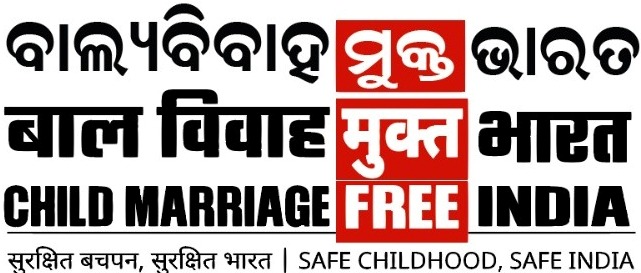
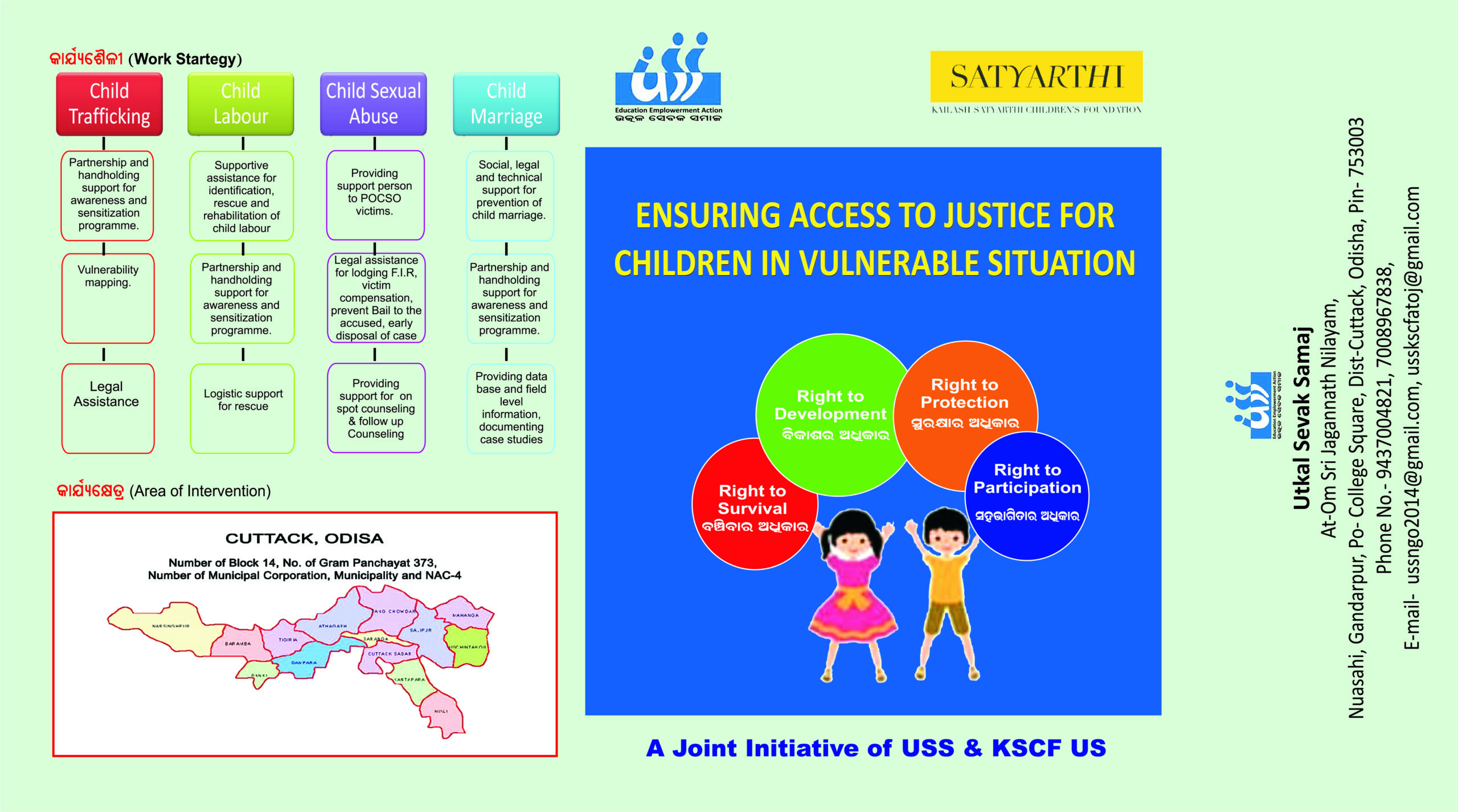
Utkal Sevak Samaj (USS) is a premier non-profit voluntary organization of Odisha working in the field of Health, HIV & AIDS, Protection of Child Rights, water & sanitation, Human Rights, Environment promotion restoration, Disaster Management, livelihood Support, Women empowerment and Strengthening Panchayatiraj Institutions since last three decades with support & collaboration of Govt., Corporate, bilateral & multilateral agencies . Utkal Sevak Samaj (USS) has received several awards including 5 times State Level award by our current Chief Minister, 11 times District Level award and 2 times National Level award for its remarkable contribution towards Societal Development.
In this nomenclature we have undertaken a programme for 0-18 years age group of children with support of Kailash Satyarthi Children’s Foundation(KSCF)-US under “Access to Justice for Children”(A2J) Program in Cuttack District. The objective of the programme is to prevent Child Labour, Child Trafficking, Child sexual abuse and to Stop child marriage by conducting pledges, creating mass awareness and through other appropriate interventions. Besides we create awareness on not to support child marriage, declaration of child marriage free villages & legal action against offenders and intervening in emerging issues relating to children crop-up from time to time. The entire objective of this programme is to develop knowledge on fundamentals of the child rights law and to build skill for strategic application of law within the Govt. structure to strengthen access to justice for children. We also focus of linking needy beneficiaries with Govt. Schemes and entitlements and keep an eye on the school drop outs & non starters, making all possible efforts to send them back to school.
Background
Child marriage is not just an age-old social evil, but also a heinous crime that robs children of their childhood. Child marriage is a “crime against children” that violates basic human rights, minor girls are forced to marry and live a life of mental trauma, physical and biological stress, domestic violence including limited access to education and increased vulnerability to domestic violence. The consequences of child marriage are severe and extensive. Some of the specific consequences include: early pregnancies leading to complications and higher rate of maternal mortality and death of infants, malnutrition among both the infant and the mother, increased vulnerability to reproductive health, disruption in girl’s education and thereby reduction in opportunities of her personal and professional development, domestic violence and abuse, limited decision making powers in the household, and mental health issues.
India’s Census 2011 revealed 12 million children were married before attaining the legal age, of which 5.2 million were girls. Globally, child marriage is identified as a crime and a menace that needs to be eliminated. It finds space in the UN Sustainable Development Goals, under target 5.3 of Goal 5 that states elimination of all harmful practices, such as child, early and forced marriage and female genital mutilation by 2025.
The latest National Family Health Survey (2019-21) shows that although there is a drop in the overall rate of child marriages, from 26.8% in the National Family Health Survey (NFHS 4) to 23.3% in NFHS-5, it is still high despite laws, programmes and schemes in place to address the issue.
Child Marriage Free India Campaign
Understanding the seriousness of the issue, the Hon’ble Supreme Court of India in W.P. Civil 382 of 2013 pronounced that the sexual intercourse committed by the husband upon his wife being under the age of 18 years with or without her consent can be constituted as rape. To address this, the most definitive and audacious commitment to end child marriage was made with the launch of Child Marriage Free India campaign.
Child Marriage Free India (CMFI) is a nationwide campaign led by women leaders and a coalition of more than 160 NGOs spanning more than 300 districts working to eliminate child marriage in India. CMFI is working to attain the tipping point of child marriage, after which the society does not accept this evil practice and that will happen when the prevalence of child marriage is brought down to 5.5% by 2030, from the current national prevalence rate of 23.3%. This is being done by initially targeting 257 high-prevalence districts and gradually focusing on all the districts of the country.
Child marriage results in child rape, resulting in child pregnancy, and in a large number of cases, may lead to child deaths. For decades, we have been losing generations of our children to child marriage. The Child Marriage Free India campaign has received extended support from various Departments and Institutions of over 28 States. So far, across India more than 5 crore people have taken the pledge to end child marriage over the last one year through the efforts of the Child Marriage Free India Campaign.
Know more about the Child Marriage Free India (CMFI) Campaign: https://www.childmarriagefreeindia.org/
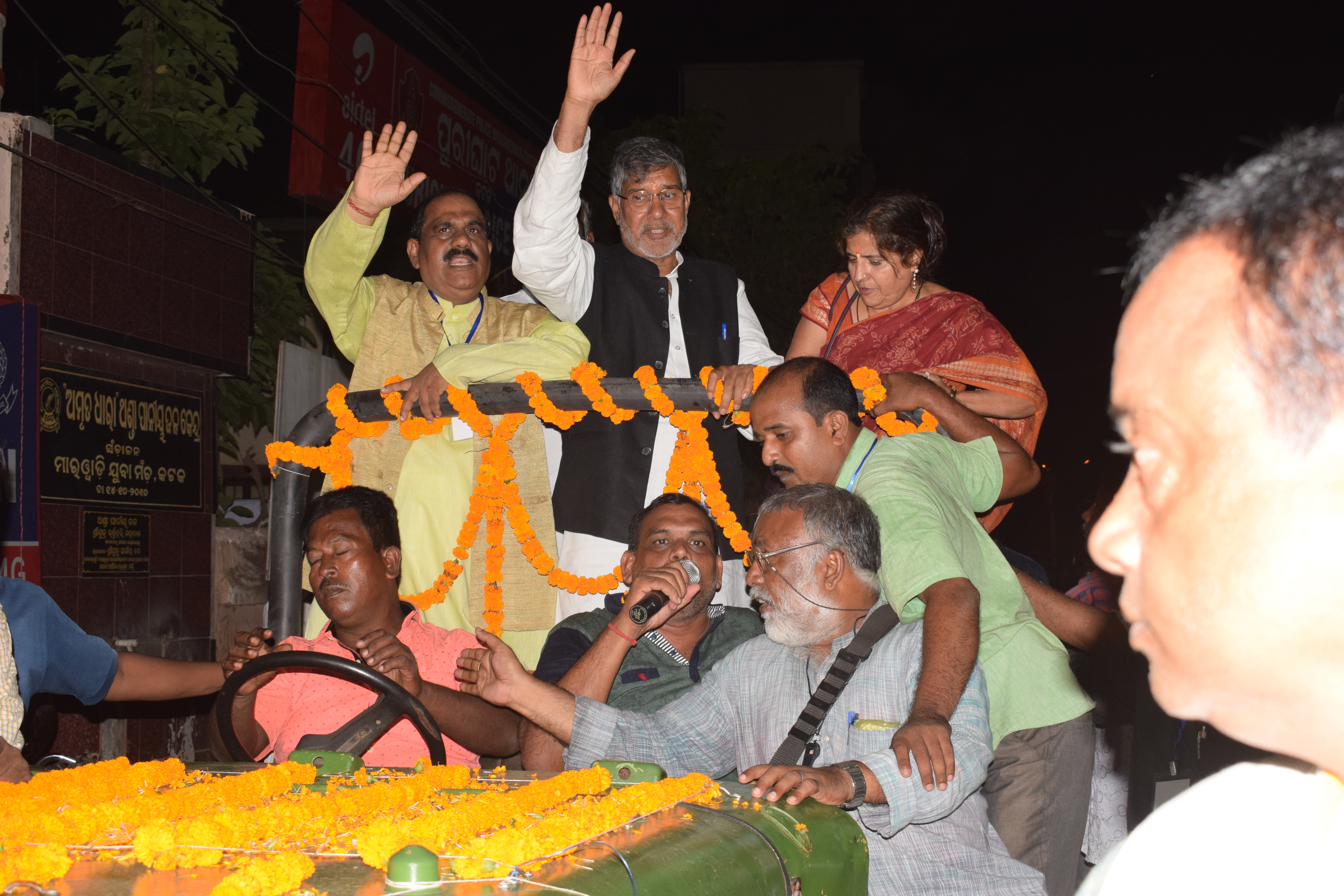
Nobel Laureate Sri Kailash Satyarthi Ji at Cuttack with Mr. Amiya Bhusan Biswal during Bharat Yatra Campaign
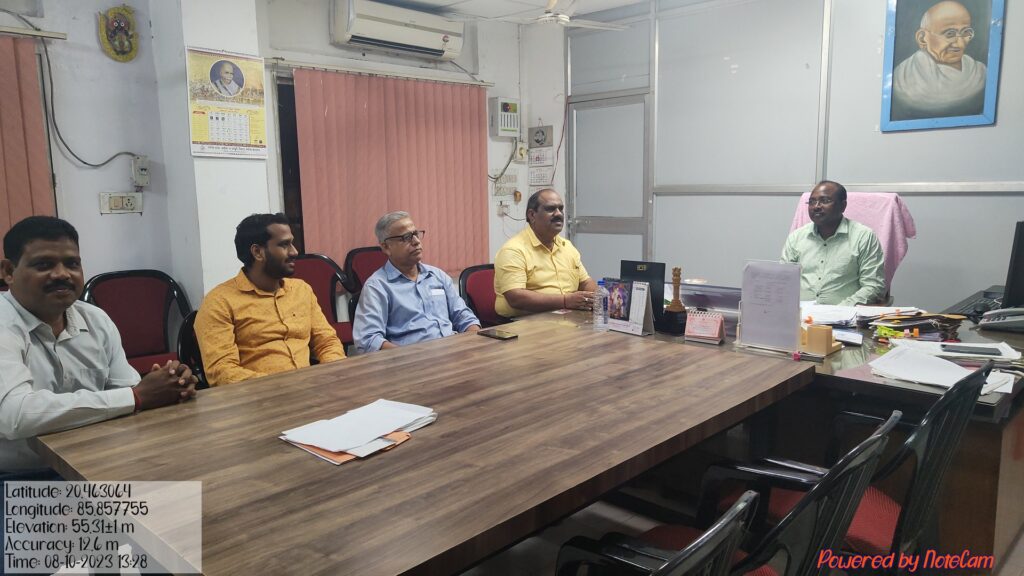
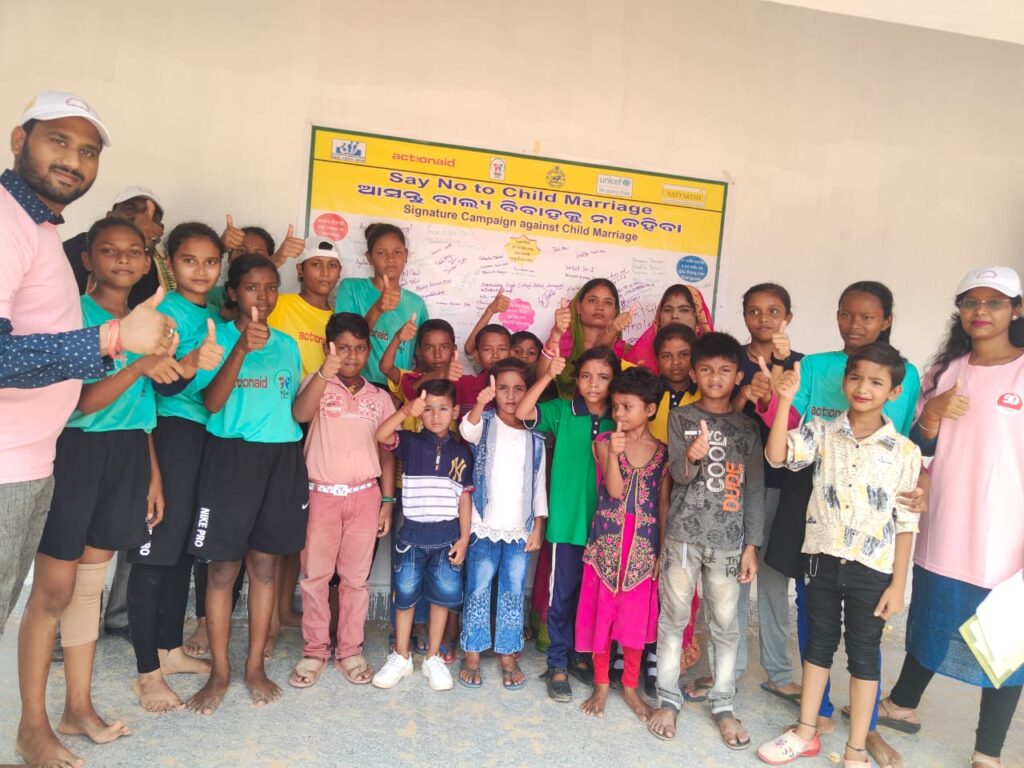
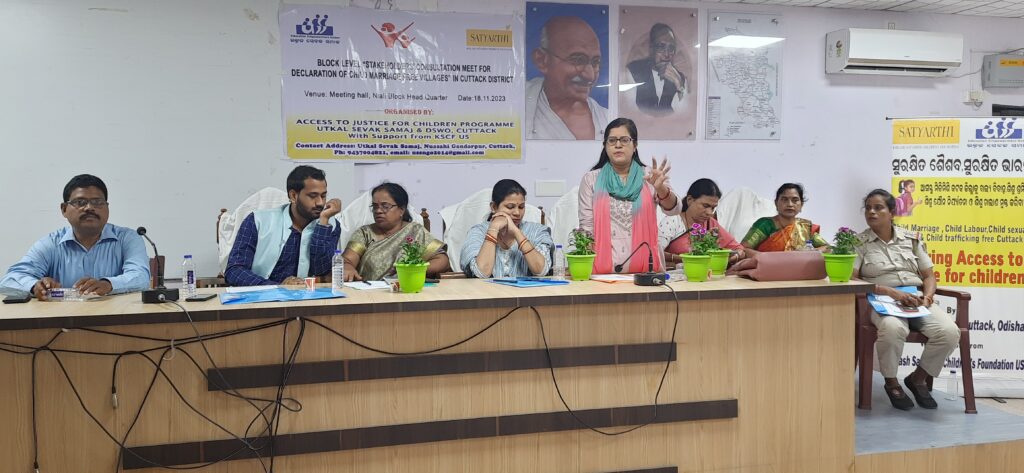
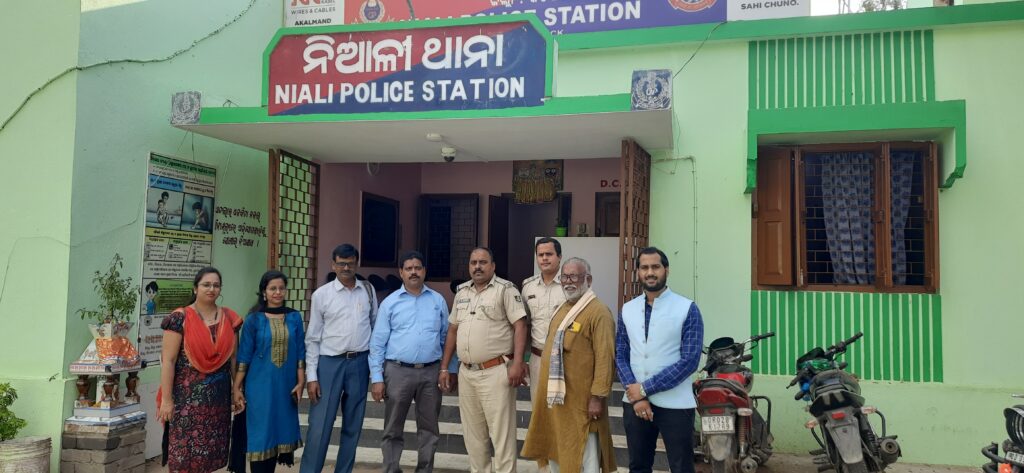
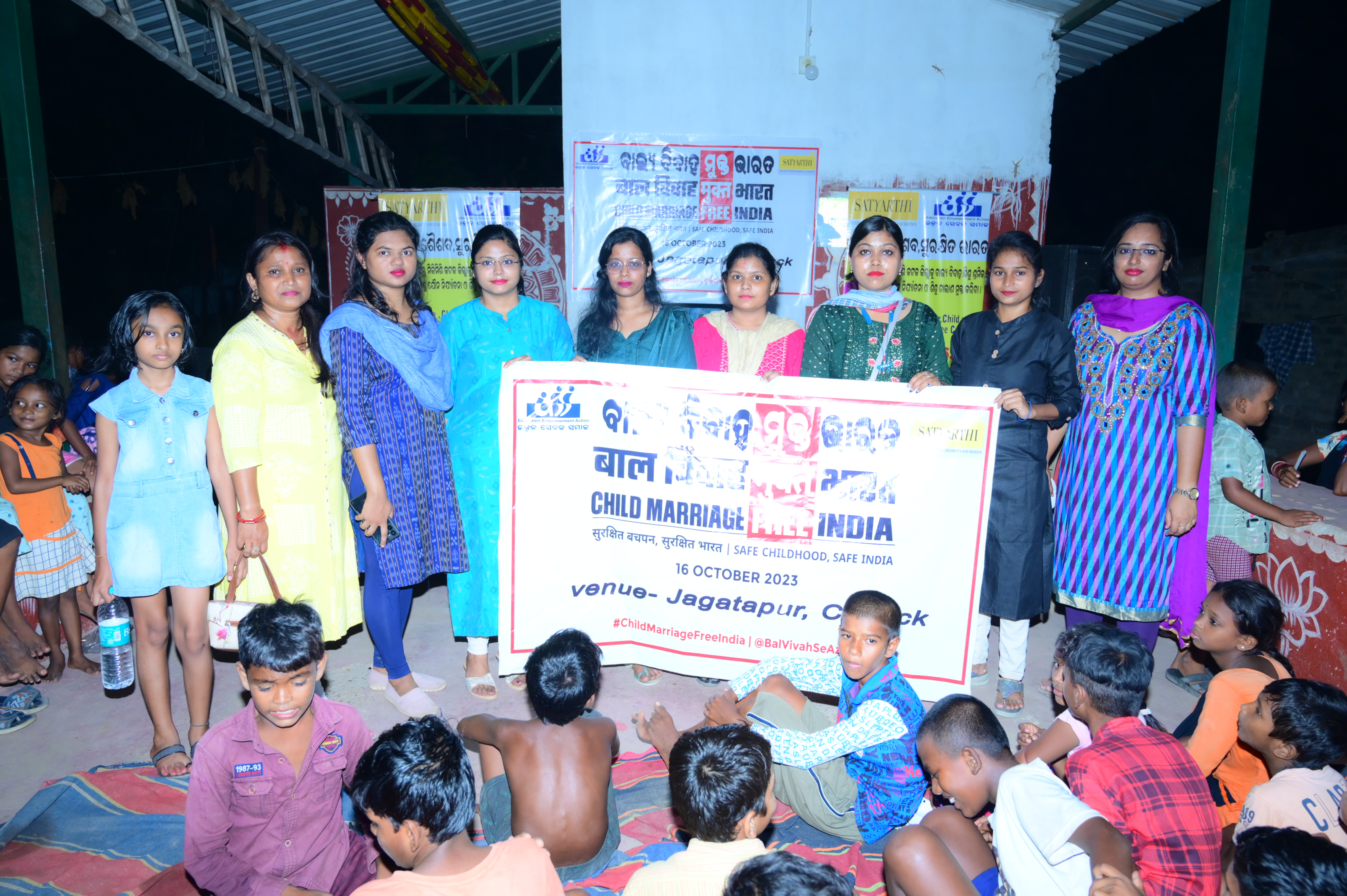
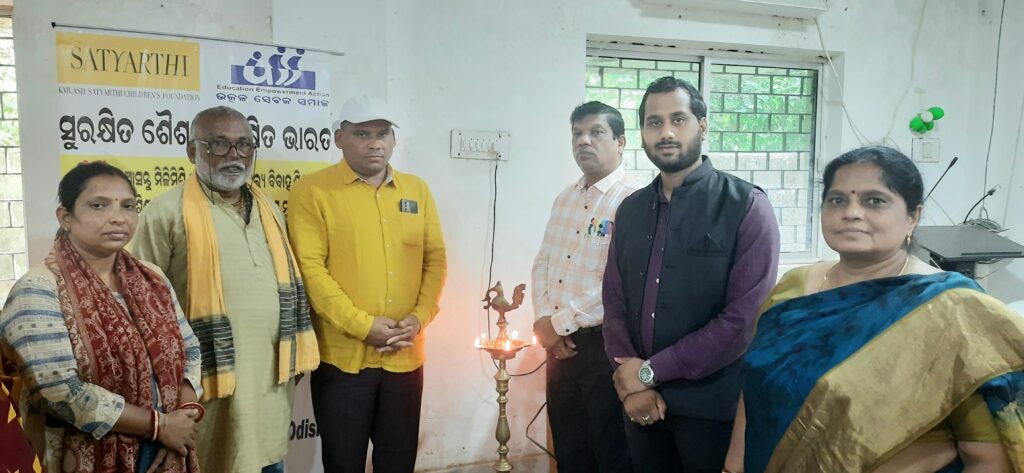
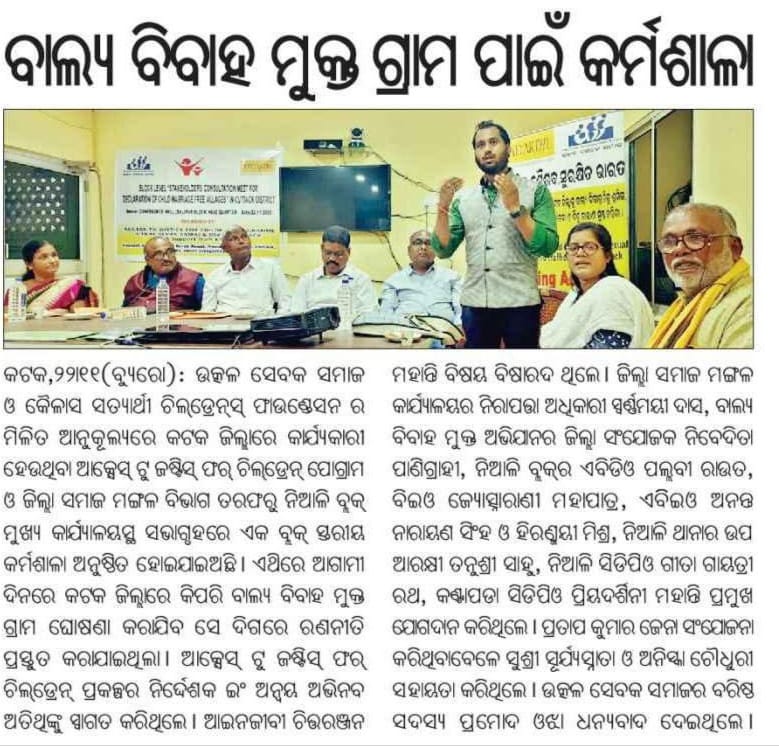
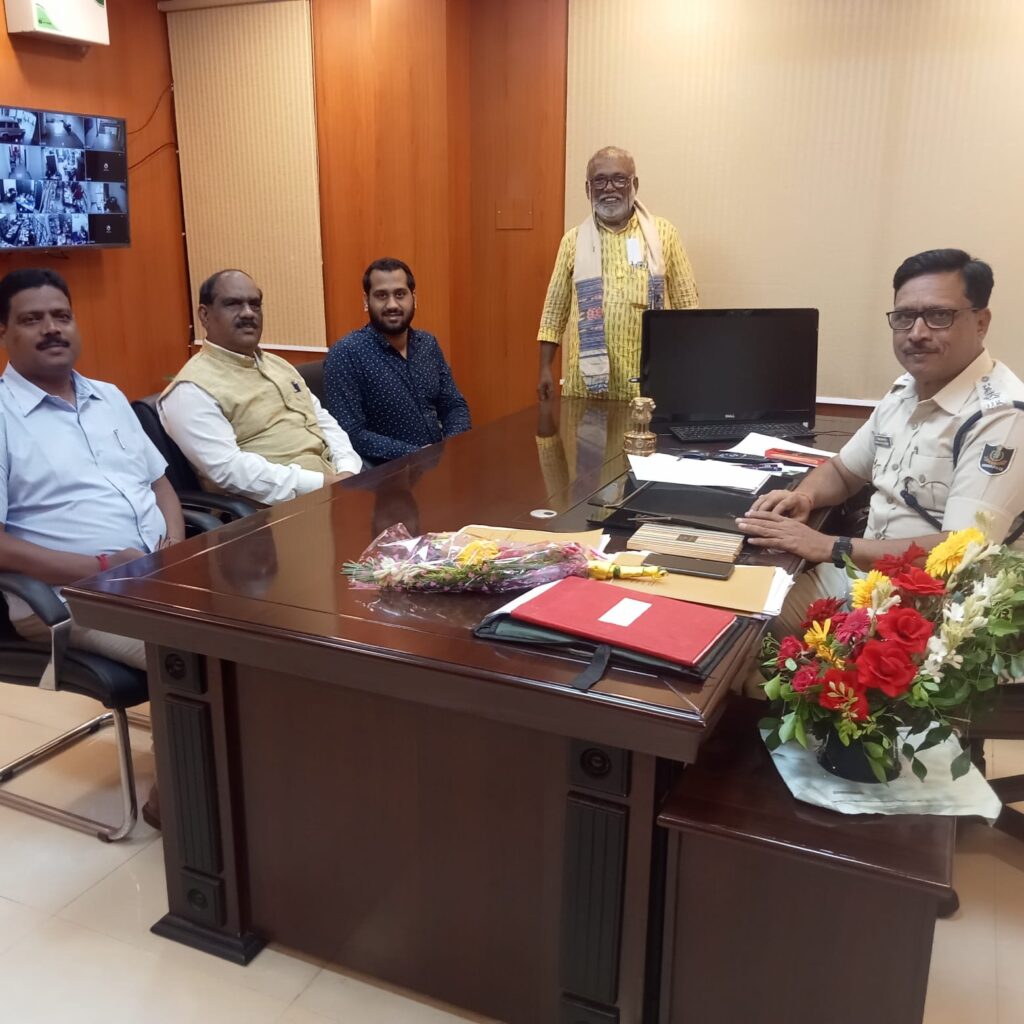
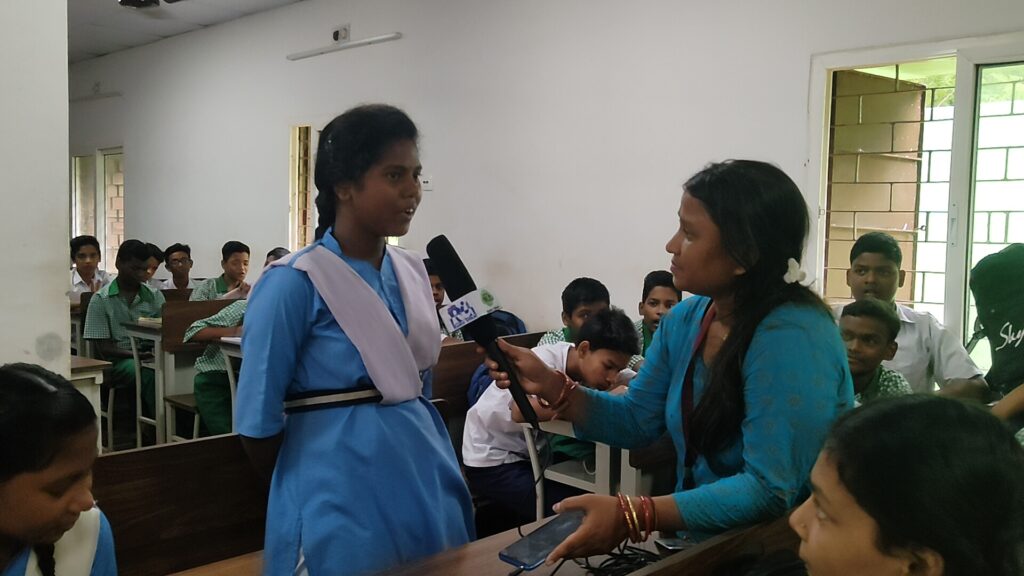
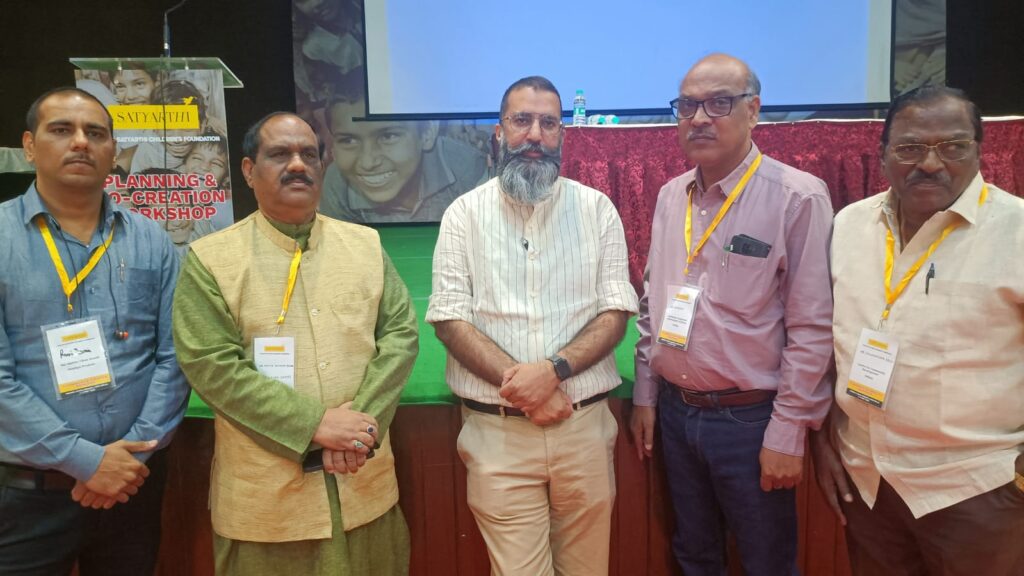
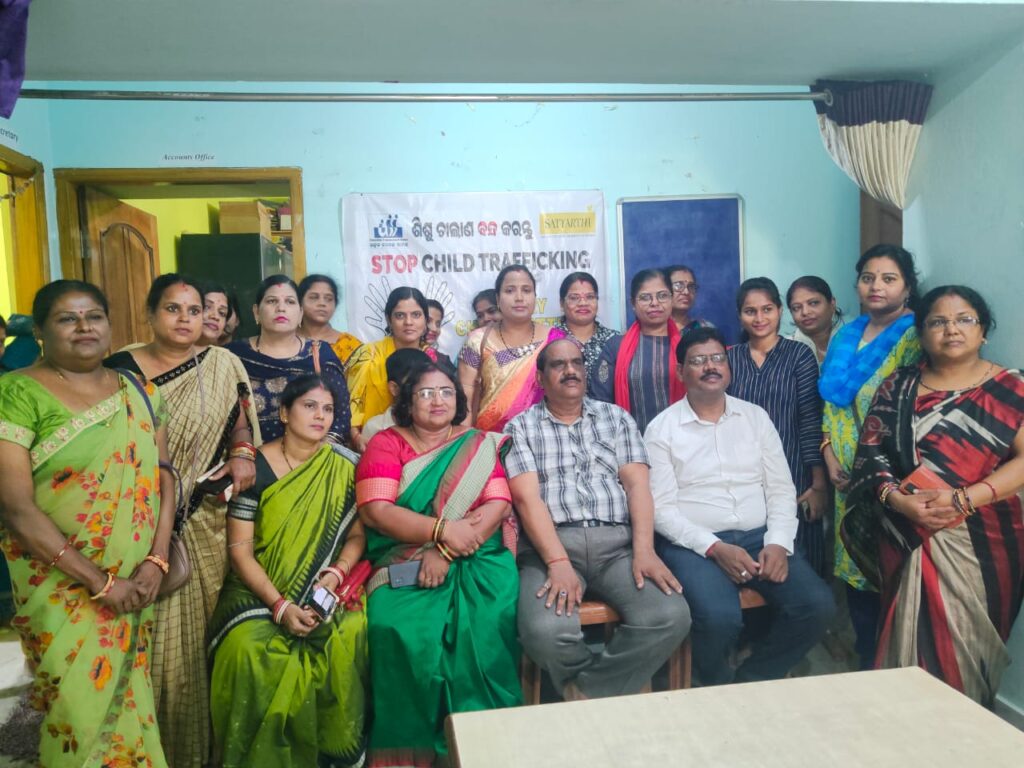
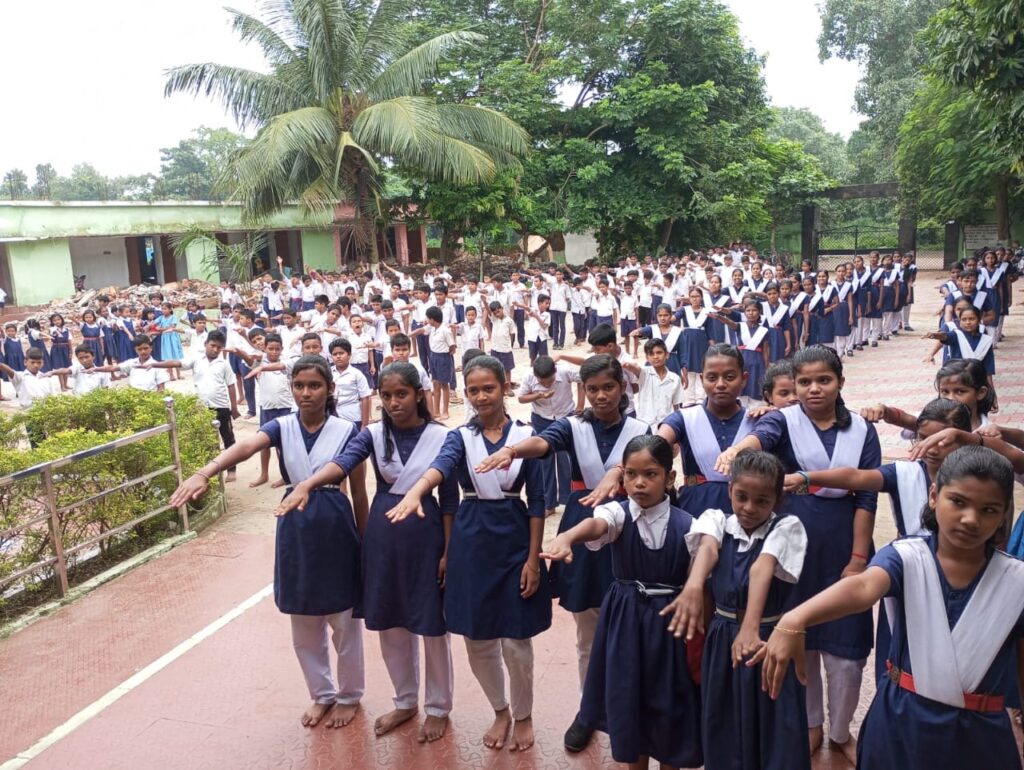
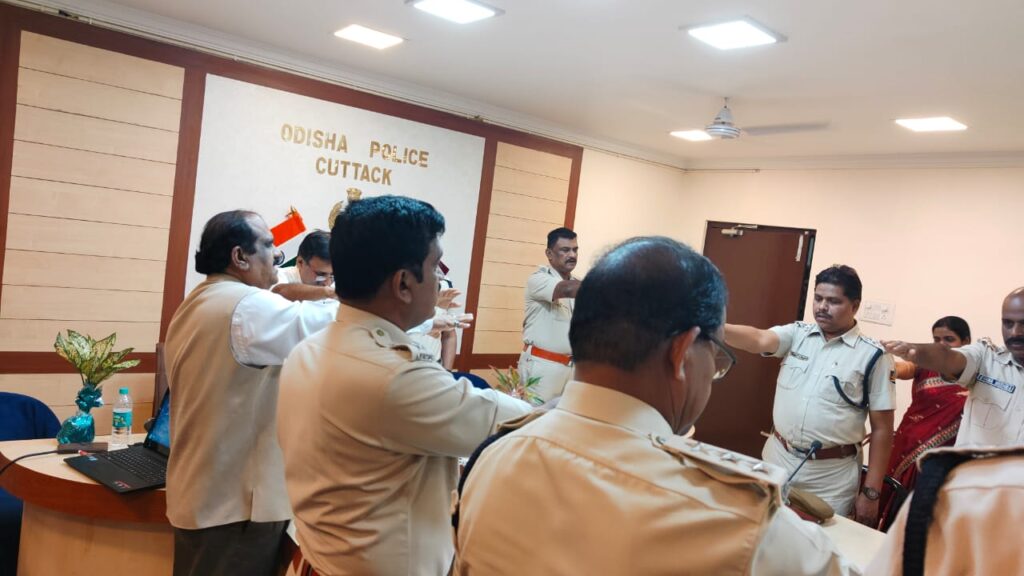
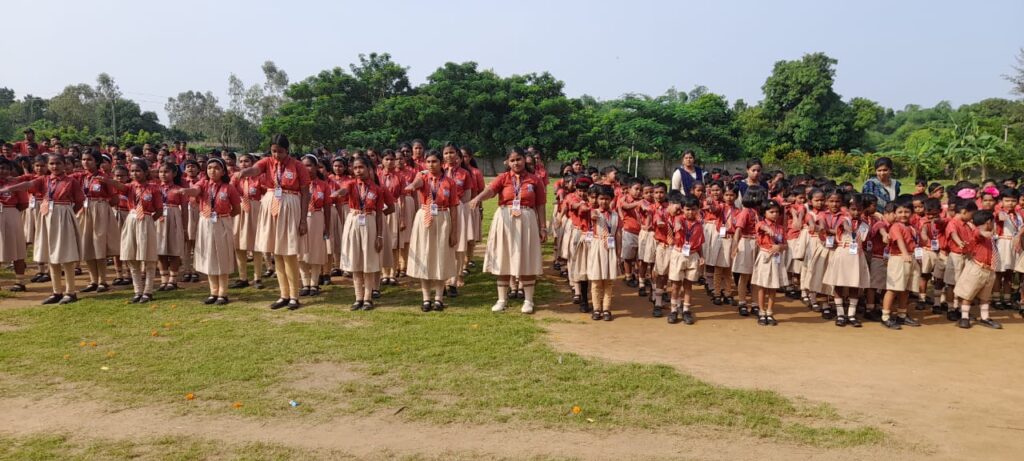
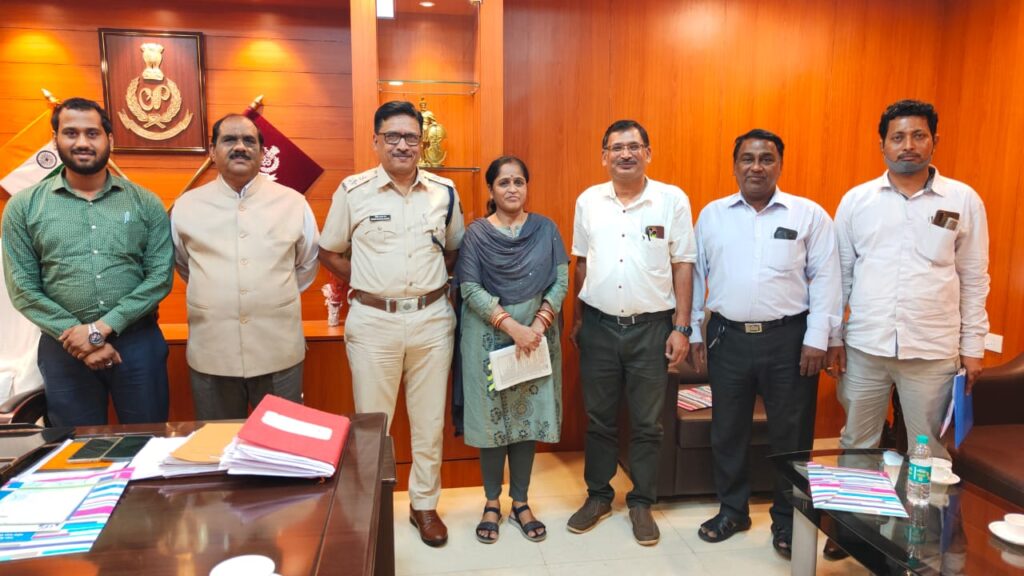
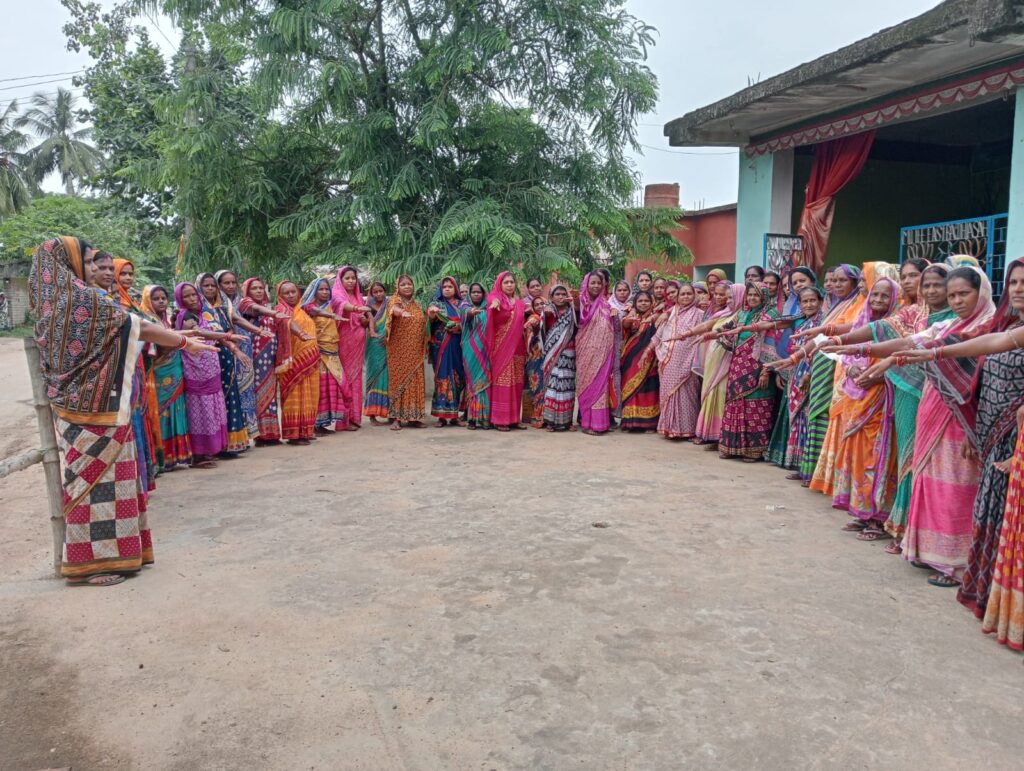
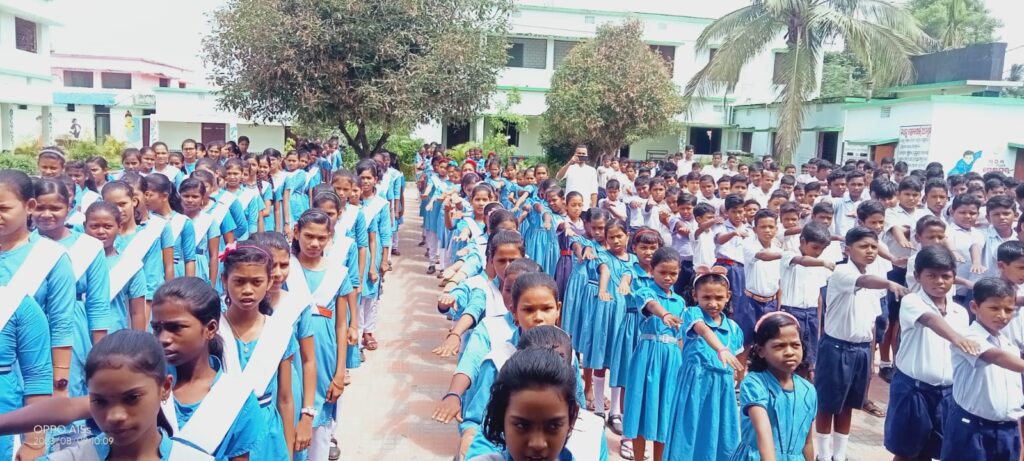
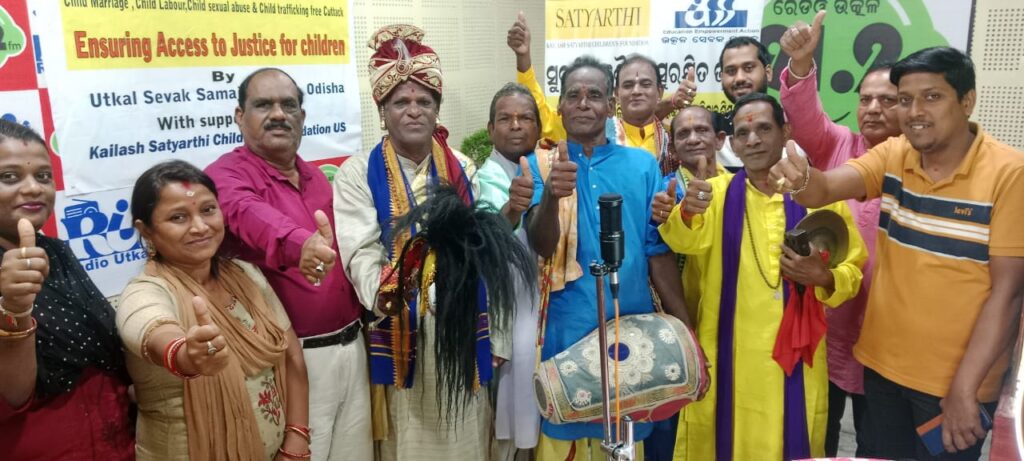
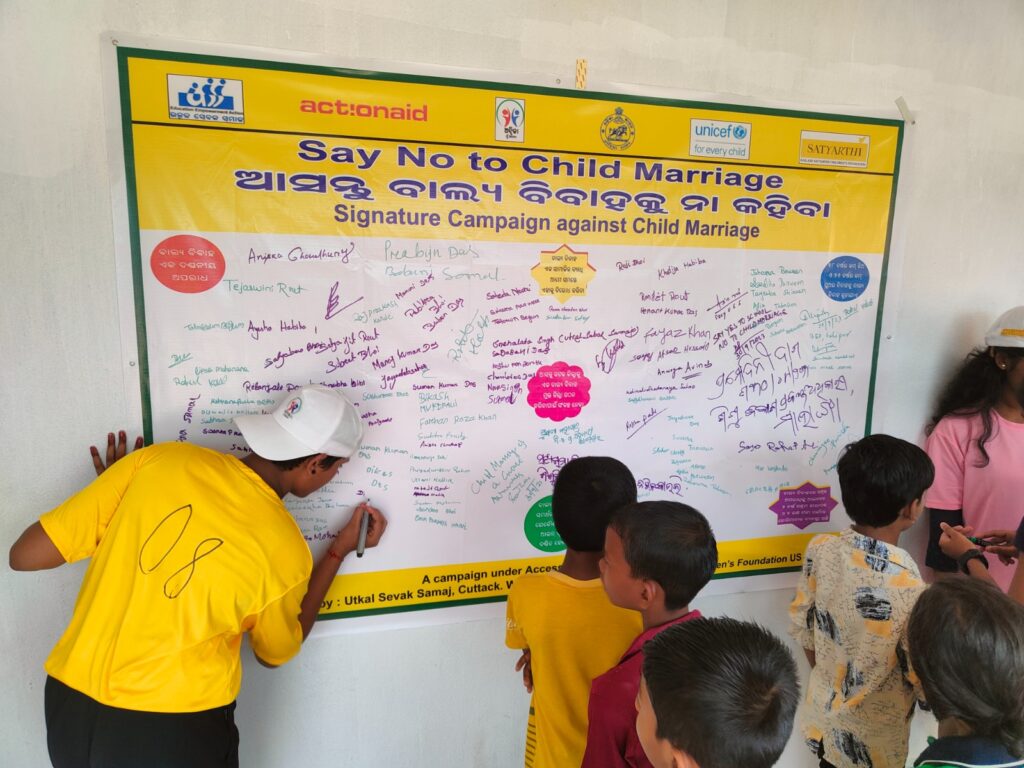
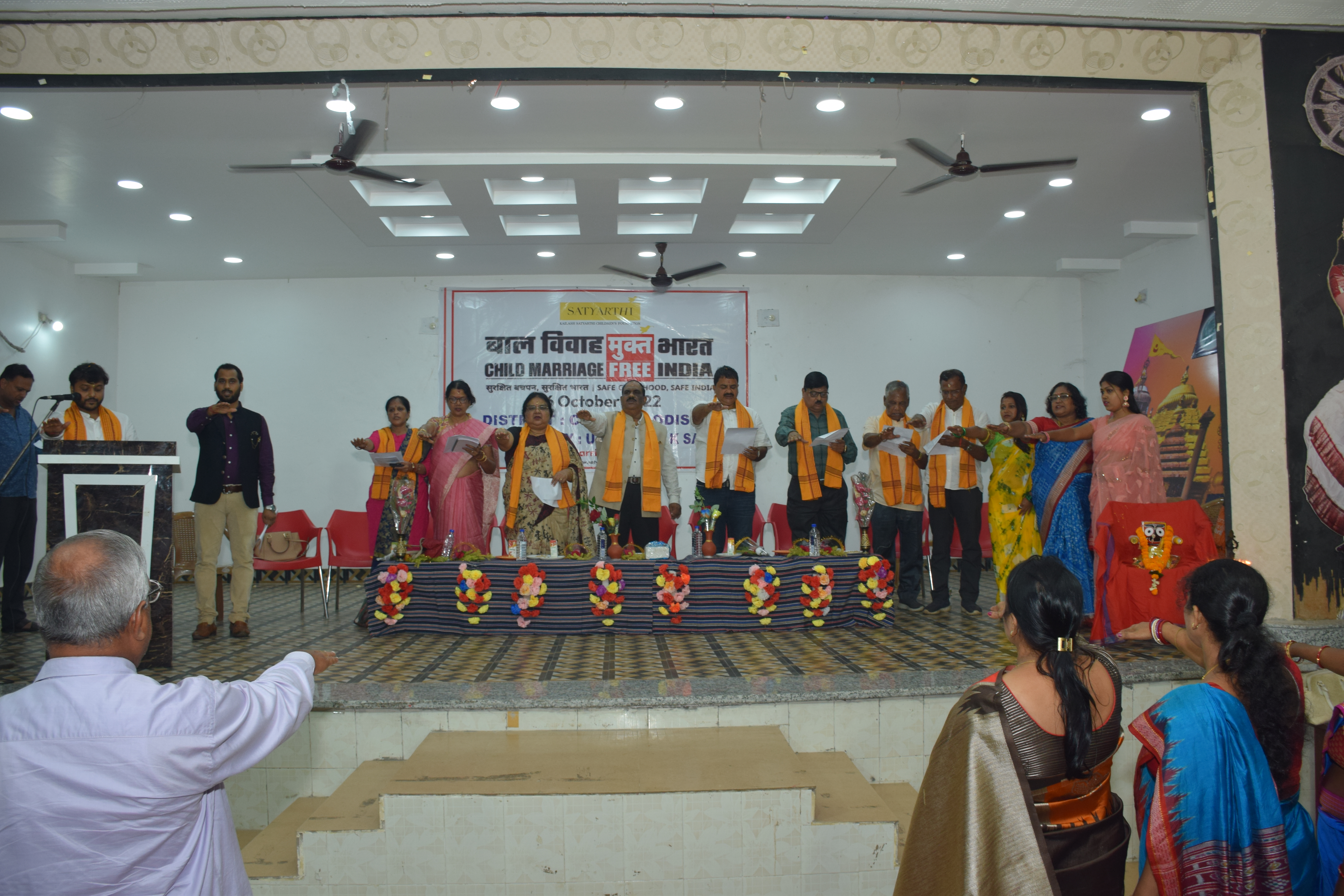
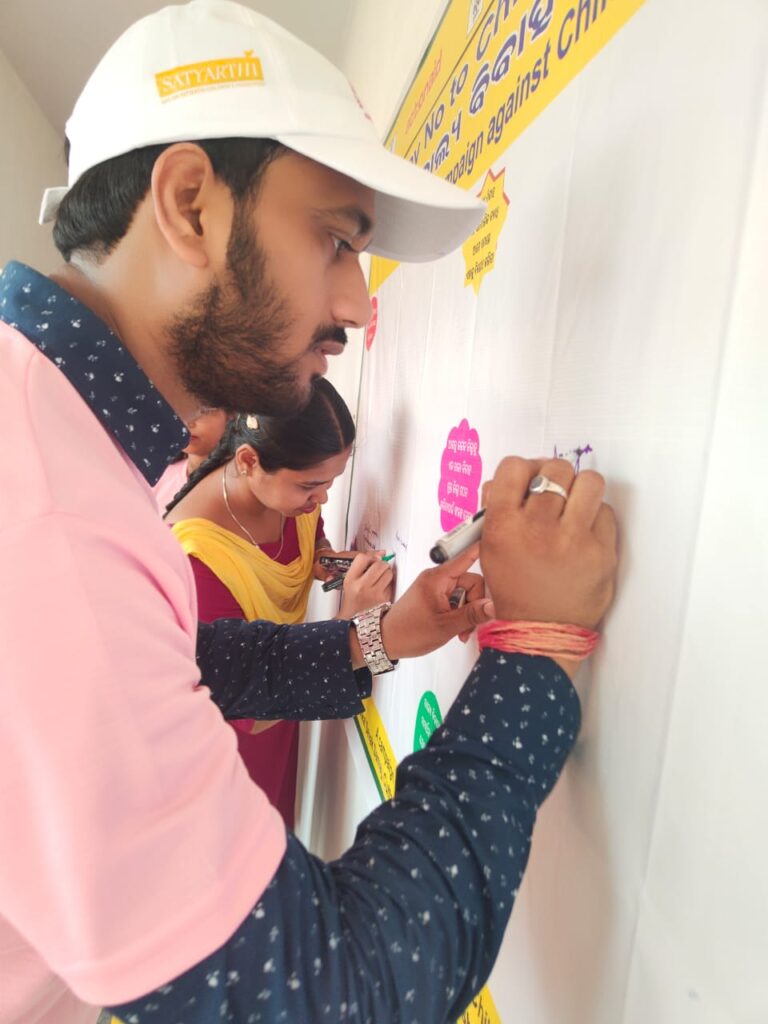
Case studies on Prevention of Child Marriage :
A stitch in time saves nine
Background of the Case:
Sima Pradhan (changed name) is a 17 years old girl live at Sankarpur village of, Choudwar, Cuttack with her Father, Mother, younger brother & sister. She has passed her 10th class from Kumarpur Govt. High School. After completion of her 10th standard she didn’t continue her study as the financial condition of her family is very poor. Her Father Ashok Pradhan is a daily labourer and her mother Kamali Pradhan is a homemaker. Ashok Pradhan earns 5000 rupees in a month which is not enough to run a family. Her younger sister also drops out from 9th standard due to worse financial condition. Only her younger brother is continuing his studies in class 6th. Sima Pradhan’s uncle gets a marriage proposal for her and her family agreed for it. Her marriage is being fixed on 26.06.2023 with a boy named Omm Rout, S/O- Dukhabandhu Rout of OTM staff colony, Choudwar, Cuttack and was planned to be solemnised in a Temple at OTM staff colony, Cuttack. By profession Omm Rout is a cook and his father is a mason. The financial condition of his family is quite stable.
Intervention in the case:-
On dated 26.06.2023 their marriage was organised in a Temple at OTM staff colony, Cuttack. This information reached the CSW of A2J USS. He immediately informed the Child Marriage Prohibition Officer of Choudwar Block, and himself reached at the location with local police. With the instruction of CMPO, local Anganwadi worker and some ChildLine activist also reached at the location. The family members had already made the arrangements for a conventional wedding and had begun the rituals. A2J USS team with the police personnel with help of local people collected key information about the age of the girl child and confirmed from the school record that this marriage is Child Marriage. Both the Bride and Bride-groom are minors.A2J USS teamtried to convince them that this is unlawful act.CSW of A2J USS team explained to both families that the right age for a girl to get married is 18 years and a boy to get married is 21 years. He made them understand that according to the law of land, if they conduct this marriage ceremony by violating the rules, they will be punished as per the child marriage prohibition Act2015and state rule 2006. He also tried to educate them about the consequence of an early marriage and its impact on health of the child. On request legal consultant to this programme also reached the spot and shared the leaflet developed on child marriage in local Odia language. Local informal leaders school teacher, president of the Temple Management Committee also called to convince the parents of both the children to stop the marriage and postponed it till they reaches the right age of marriage. After an hour long discussion both the families understood the consequences and decided to call off the marriage. The fathers of both the girl and the boy gave an undertaking in written that they would call off the marriage now and they will arrange the marriage of their children after attaining the right age.
Present Situation:
After one month of this marriage cancellation on 27.06.2023 our team again reached at the girl’s house to see her present condition and impact of this intervention. During our interaction we got to know that the family is depressed and feel humiliated after this incident. They carry the impression that their daughter cannot marry again in future to any other person if the same boy denies marring their daughter as per the agreement and undertaking. As their financial condition also don’t support them to again arrange the marriage to a candidate of their suitable choice. They are in a state of mental stress and trauma. It is also found that they are not getting any kind of support from government schemes and entitlements. They expressed their irritation and harsh words and blamed us for stopping the marriage. We have shared that they have done the right thing by stopping the marriage. Early marriage would have invited multiple health complications to their girl child. Similarly the legal action in form of imprisonment and penalty might have more heavy on the family. We have decided to call one more community meeting in the village under the chairmanship of local Sarpanch and link the family with suitable govt schemes and entitlement provisions. Similarly we have made of our mine to make all effort to ensure the continuation of study of the victim girl as well as her two younger brother and sister. We also plan to meet the parents of the boy child and motivate them to keep familiar and cordial relation with the family of the girl child and solemnise the marriage after the legal age of marriage is attended.
Child Marriage Stopped:
Background of the Victim
Priya Nayak (changed name) is a 14-year-old girl who lives in Kisornagar, Cuttack. She lived with her father, mother & elder brother. Her father is a farmer. Her mother works as a cook at a local Govt. school & her brother is a truck driver. She is studying in class 9. She is a very simple and sweet girl. Her brother’s friends used to come to her house more often. One of his brother’s friends, whose name is Dipu Barik, had an eye on him. He used to stare at her. He had bad intentions regarding Priya. Sometimes he tried to touch her inappropriately. Priya is ignoring him because she is able to understand his intentions, but her mother used to support that boy and gave him chances to be close with her. For this reason, Priya does not have a good relation with her mother.
Brief incident & our intervention:-
On 26th June 2023, at 10 am, our Social Worker Snehalata Singh got an information from a reliable source that a 14-year-old minor girl had been abducted by a person and kept in his house. The minor girl wanted to be released from the accused, but she failed. Our CSW Snehalata Singh informed the local police as well as ASHA, AWW & Supervisor to help her in the rescue of the minor girl from the spot. Being informed by the CSW, the local police reached the spot, and they rescued the minor girl, but unfortunately, the accused fled from the spot. When they rescued the victim, the girl was sitting on the floor. She was very much scared. Our CSW tried to build up trust with the victim and create child-friendly behaviour towards the victim. After one and half hours, the victim explained the fact before our CSW and Police that the accused was a 24-year-old boy who was his brother’s friend. He gave her a marriage proposal, but she refused that. One day, when the victim was at her home alone, the accused kidnapped her and keep her in his house. His intention was to marry her. The parents of that boy also do not have any objection to this marriage. It had been 2 days since he took her home, and he had planned to marry her after 2–3 days. After listening to the whole thing, our CSW was consoling that girl by sitting near her and assuring her that she would keep her in a safe place where she could continue her studies and no one could force her to marry without her consent. The police staff took the girl to the police station. Our CSW and ASHA went with her. At the police station, that girl’s parents were called & the IIC recorded the statement of that girl & her parents. Her parents wanted to take her home, but she did not want to go home. So it was decided to produce her before CWC so that they could make a decision for the betterment of the child’s future. CWC decided to send her to the Basundhara CCI. The girl and her parents also agreed.
Conclusion :-
Now she is staying at Basundhara Child Care Institution. She is continuing her studies. During a counselling session at Basundhara CCI, she stated that she wants to learn some extracurricular activities like tailoring, so that she can be able to earn some money and can be independent financially. Then we talked with the person in charge about this, and she instantly agreed to provide her some training. Priya is living happily there. Whenever we went there to meet her, she expressed her gratitude towards us for saving her life and for giving her a better future. We also felt very happy because we were able to save the life of a little angel.
“WHEN CHILDREN HAVE CHILDREN” Written by BHUWAN RIBHU

Tipping Point to end child marriage
Noted child rights activist, author, Supreme Court lawyer and founder of CMFI campaign, Bhuwan Ribhu has authored a book – ‘When Children Have Children: Tipping Point to End Child Marriage’ and put forth a framework advocating a sustainable, holistic and focused strategy with time-bound targets and measurable indicators to make India child marriage free by 2030. This book shows the path to eliminating child marriage in India within the next decade. As suggested by the author in the book, by adopting a systematic, highly focused, and intensive intervention model, over a phased timeline it is possible to reduce the national child marriage prevalence levels to 5.5% —the threshold, the tipping point, beyond which the prevalence is anticipated to diminish organically with reduced reliance on targeted interventions.
Tipping Point Methodology
The aim of reduction of 60% of child marriage (in each of the phases) is assumed to bring down the incidence of child marriage to 5.5% in the next 9 nine years from 2021, from the last available estimates i.e., NFHS-5, till 2030. An additional assumption is that such a focused and elaborate intervention against child marriage would have a ripple effect. The tipping point analysis has been divided into two phases. The first phase will extend over a period of six years, starting in 2021. Subsequently, the second phase will span over a three-year period. It is expected that the national average for child marriage prevalence (percentage women aged 20-24 who were married before 18 years) would decline from 23.3% to 13.7% if the prevalence of child marriage is reduced by 60% in the 257 high-prevalence districts in the first phase followed by a further reduction of 60% in all districts across the country.
In order to reach the Tipping Point, the author has proposed a strategy at national and district level.
- National Level strategy where Governments, Institutions, statutory bodies, etc. work towards prevention, protection, increased investment, improved prosecution, convergence and use of technology for monitoring
- District Level strategy is similar to national level strategy but includes district administration, Panchayats, civil society, NGOs, other functionaries, parents and children who work collectively to prevent, report, and take action against child marriage
